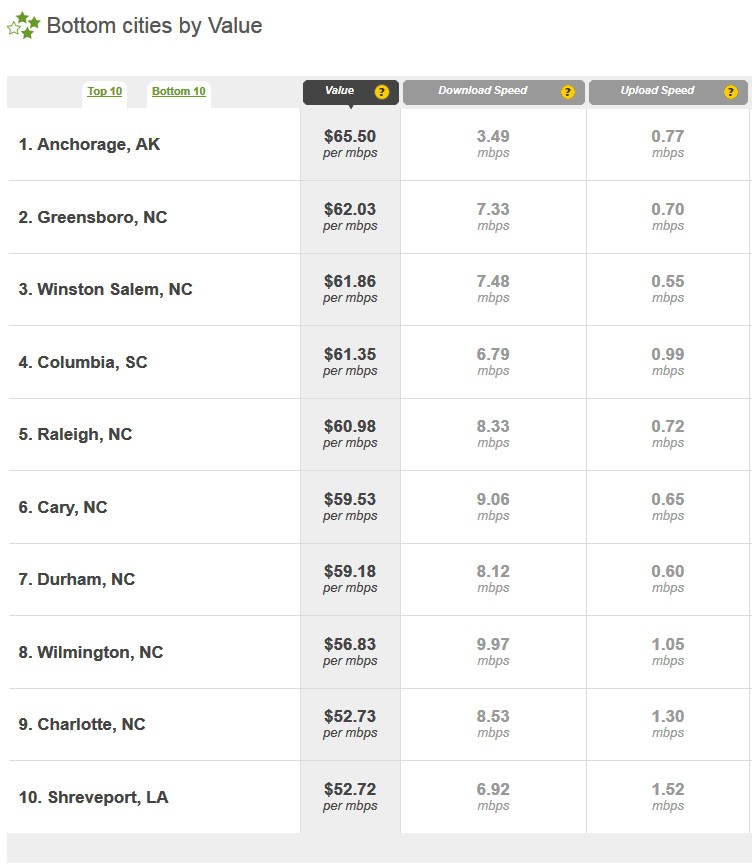 A new report has found the home of America’s worst broadband service can be found in the state of North Carolina.
A new report has found the home of America’s worst broadband service can be found in the state of North Carolina.
The Tar Heel State ranks dead last in the number of homes able to access the Internet at speeds the Federal Communications Commission defines as “broadband” — 4/1Mbps. The report quotes from FCC figures that show only 10 percent of North Carolina households are receiving broadband service at speeds that equal or exceed 3Mbps downstream and 768 kbps upstream. States traditionally thought to be bottom-ranked, including Mississippi and Idaho, are now doing better than the home of Research Triangle Park.
The report comes courtesy of the SouthEast Chapter of the National Association of Telecommunications Officers and Advisors (SEATOA), which is attempting to fight off efforts to stop individual communities from delivering the service big cable and phone companies refuse to provide in large parts of the state.
Where Time Warner Cable, AT&T, and CenturyLink do deliver service, customers pay dearly for it. Broadband.com found most of America’s worst broadband values in North Carolina. In fact, outside of prohibitively expensive Anchorage, Alaska, seven of the ten most expensive cities were in North Carolina, when measuring cost per megabit (see below for a better understanding of how this figure was computed):
Comparatively, states in the northeast were meccas. Sixty percent or more of residents in Delaware, Massachusetts and New Jersey have broadband at speeds the FCC now considers bare minimum. In larger states: New York, 43 percent and Pennsylvania, 44 percent, broadband speed still scored higher despite the large rural sections of both states. Verizon’s fiber-to-the-home network has compelled upgrades among cable company competitors to keep up with the benefits fiber optics bring.
But in North Carolina, only community-owned networks are delivering service comparable to that found in the increasingly-fiber-wired northeast. Instead of committing to upgrades, large cable and phone companies are spending plenty lobbying to restrict and banish the improved service these networks provide in communities like Wilson and Salisbury.
SEATOA’s conclusion? The current inadequate level of service coming from North Carolina’s cable and phone companies allows the state to fall further behind in America’s economic recovery.
More about how Broadband.com calculated the results can be found below the jump.


 Subscribe
Subscribe




